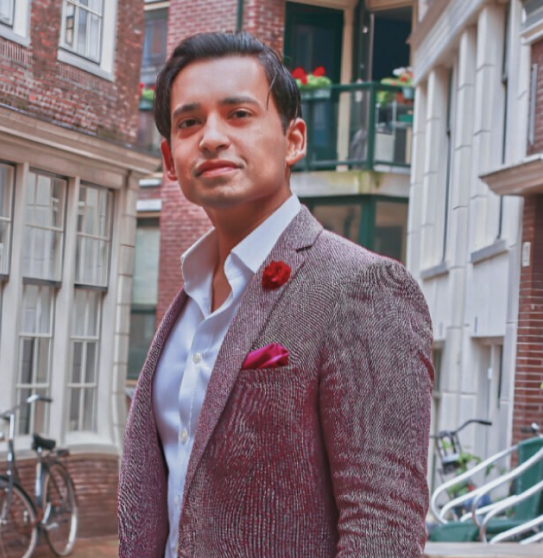Collaboration With Psychiatric Nurse Practitioners & APNs
Collaboration with Psych NPs and APNs
Arnab Datta MD teaches and collaborates with Psychiatric-Mental Health Advanced Practice Nurses (PMH-APRN). Aka Psychiatric Nurse Practitioners and APNs.
Dr. Datta teaches psychiatric med management, controlled substance med management, a variety of psychotherapies, addiction treatment, family and couples therapy as well as meditation and EMDR.
Dr. Datta is currently the medical director of 3 clinics in New York City and has his own multi state psychiatric private practice. Dr. Datta is licensed in the states of New York, New Jersey, North Carolina, Florida and Illinois.
Making an accurate diagnosis: There are erroneous diagnoses that patients are carrying. This leads to incorrect or superfluous medication management. For example, one of the major diagnostic oversights is the following. There are patients who carry a diagnosis of Schizophrenia, Bipolar Disorder or Schizoaffective disorder but actually have a constellation of Trauma history, Personality Disorder Trait and Addiction. The patients are on and have been through a slew of meds. Dr. Datta helps NPs understand the patient by gathering an empathic history so these patients can be understood correctly and treated accurately.
Medication Management: Dr. Datta teaches NPs the nuances of both regular medication management as well as controlled substance medication management such as benzodiazepines (xanax, klonopin, valium), stimulants (adderall, ritalin, vyvanse) and suboxone. Dr. Datta completed two fellowships in addiction psychiatry where the training in controlled substances were robust. Dr. Datta also teaches how psychotherapy and emotions are connected to the medications patients are prescribed. Even though Dr. Datta teaches med management, he helps patients find the solution emotionally so they can eventually be off meds. See Philosophy of Medication Management.
Psychotherapy Techniques: Dr. Datta believes that personality, character and life experience is directly related to a person’s psychology and the medication they are on. In the context of discussing patient cases, Dr. Datta teaches the following psychotherapies: psychodynamic psychotherapy, cognitive-behavioral therapy, dialectical behavior therapy, motivational interviewing, family and couples therapy. Dr. Datta believes that in the field of mental health, the focus should always be on understanding and emotional healing. However, there are people who have done genuine therapy for years and are having difficulty breaking through a wall. Medications help get you there efficiently when psychotherapy is done in tandem. Then there are people who are just fine with psychotherapy alone. NPs are shown how to treat each patient in a customized individualized way. Please see Philosophy of Psychotherapy.
Emotional, Psychological self reflection and Burnout Prevention: NPs can discuss their counter-transference toward their patients with Dr. Datta. Transference is also discussed; which is how the patient feels about the provider. Dr. Datta had his own psychoanalysis outside of his residency and fellowship training. NPs can discuss psychotherapeutic issues in their own life with Dr. Datta. This is done because the emotions of both the Provider and Patient play a role in the psychotherapeutic/psychiatric space. Our patients make us feel a certain way sometimes. NPs learn about boundaries so they can maintain their cool and maintain composure in difficult patient cases. So that NP can be strong and balanced and the patients are heard and taken care of in a highly skilled fashion. Here, there’s an importance of self-care and stress management for the NPs.
Please call 877-376-4560 to see if you and Dr. Datta are a fit for clinical collaboration.
More Services

Addiction Treatment
To help people experience psychological and emotional change in their lives

Psychotherapy
To help people experience psychological and emotional change in their lives

Meditation & EMDR
To help people experience psychological and emotional change in their lives

Med Management
To help people experience psychological and emotional change in their lives

Collab with Psych NPs
To help people experience psychological and emotional change in their lives
Collaboration with Psych NPs and APNs
Arnab Datta, MD teaches and collaborates with Psychiatric-Mental Health Advanced Practice Nurses (PMH-APRN). Aka Psychiatric Nurse Practitioners and APNs.
Dr. Datta teaches psychiatric med management, controlled substance med management, a variety of psychotherapies, addiction treatment, family and couples therapy as well as meditation and EMDR.
Dr. Datta is currently the medical director of 3 clinics in New York City and has his own multi state psychiatric private practice. Dr. Datta is licensed in the states of New York, New Jersey, North Carolina, Florida and Illinois.
Making an accurate diagnosis: There are erroneous diagnoses that patients are carrying. This leads to incorrect or superfluous medication management. For example, one of the major diagnostic oversights is the following. There are patients who carry a diagnosis of Schizophrenia, Bipolar Disorder or Schizoaffective disorder but actually have a constellation of Trauma history, Personality Disorder Trait and Addiction. The patients are on and have been through a slew of meds. Dr. Datta helps NPs understand the patient by gathering an empathic history so these patients can be understood correctly and treated accurately.
Medication Management: Dr. Datta teaches NPs the nuances of both regular medication management as well as controlled substance medication management such as benzodiazepines (xanax, klonopin, valium), stimulants (adderall, ritalin, vyvanse) and suboxone. Dr. Datta completed two fellowships in addiction psychiatry where the training in controlled substances were robust. Dr. Datta also teaches how psychotherapy and emotions are connected to the medications patients are prescribed. Even though Dr. Datta teaches med management, he helps patients find the solution emotionally so they can eventually be off meds. See Philosophy of Medication Management.
Psychotherapy Techniques: Dr. Datta believes that personality, character and life experience is directly related to a person’s psychology and the medication they are on. In the context of discussing patient cases, Dr. Datta teaches the following psychotherapies: psychodynamic psychotherapy, cognitive-behavioral therapy, dialectical behavior therapy, motivational interviewing, family and couples therapy. Dr. Datta believes that in the field of mental health, the focus should always be on understanding and emotional healing. However, there are people who have done genuine therapy for years and are having difficulty breaking through a wall. Medications help get you there efficiently when psychotherapy is done in tandem. Then there are people who are just fine with psychotherapy alone. NPs are shown how to treat each patient in a customized individualized way. Please see Philosophy of Psychotherapy.
Emotional, Psychological self reflection and Burnout Prevention: NPs can discuss their counter-transference toward their patients with Dr. Datta. Transference is also discussed; which is how the patient feels about the provider. Dr. Datta had his own psychoanalysis outside of his residency and fellowship training. NPs can discuss psychotherapeutic issues in their own life with Dr. Datta. This is done because the emotions of both the Provider and Patient play a role in the psychotherapeutic/psychiatric space. Our patients make us feel a certain way sometimes. NPs learn about boundaries so they can maintain their cool and maintain composure in difficult patient cases. So that NP can be strong and balanced and the patients are heard and taken care of in a highly skilled fashion. Here, there’s an importance of self-care and stress management for the NPs.
Please call +1 877-376-4560 to see if you and Dr. Datta are a fit for clinical collaboration.
Cognitive Behavioral Therapy
CBT is a goal-oriented therapy. CBT does uncover core beliefs and intermediate beliefs – these are things we believe deep down that can sabotage us – that is the deeper part of CBT – you can see that it shares an aspect with psychodynamics psychotherapy because there is some unconscious digging. However the goal oriented aspect of CBT is a combination of life coaching, career coaching and psychotherapy. We see what’s keeping you from accomplishing your goals, establish step by step checkpoints and take steps to achieve them. Traditional CBT follows exercises that are done from a manual or workbook. The CBT workbook has scientifically based exercises you can complete in order to have a more concrete understanding of your goals. People sometimes attend big conferences or seminars in order to accomplish their goals. When they want to become serious about their individual growth, then they will come to a practice like this and focus on the unconscious/practical endeavor to become the best, most efficient and content version of themselves.
Motivational Interviewing Therapy:
A type of talk therapy used in substance abuse and addictions. This can be applied to both behavioral and drug addiction. Motivational interviewing can help change negative, maladaptive and self-sabotaging behavior patterns while keeping you focused on accomplishing your goals.
Family Therapy (Relationships)
https://www.ncbi.nlm.nih.gov/pmc/articles/PMC7001353/–
Dr. Datta uses techniques from the Ackerman and Gottman Institutes of Family and Couples Therapy. Individual patients can talk about their families. We are part and parcel of our family and ancestors whether we like it or not. We inevitably inherit some qualities from them. We also need to separate and individuate in a healthy psychological and emotional way to become our own person (based on the works of Separation and Individuation by psychologist Margaret Mahler). However, we can choose to make different choices. The journey of overcoming certain maladaptive behaviors is to understand one’s family first.
We must understand where we came from in order to grow from it. Dr Datta uses a variety of techniques to help his patients understand where they came from. It’s important to learn to take the valuable lessons that benefit us and to surrender / let go of the lessons that do not. Dr Datta helps families understand where the values are different, where individuals are independent – and there can be a harmonious balance between the two.
Family and a couple therapy skills also translate into teaching groups, teams and co-workers how to be productive together. Dr Datta does team building activities with sports teams and companies. Understanding your family and your partner’s family helps in couples therapy as well.
Couples Therapy:
https://www.ncbi.nlm.nih.gov/books/NBK253321/
Not on the same page? We discuss communication techniques to get you and your partner listening and understanding one another. Every individual has their own unique love language and style of communication, and it takes patience and understanding from both parties to learn and adapt to each other’s ways of communicating; and in order to facilitate this, Dr. Datta uses the speaker listener technique, which is a great way to understand and communicate with your partner or loved one.
Dr Datta helps couples of interracial and interfaith backgrounds find a common ground of faith and beliefs in their household. However, you do not need to be an interracial or interfaith couple to see Dr Datta.
Even if you are an individual patient, feel free to share your questions about your relationship with Dr Datta. Dr. Datta also helps individuals who are trying to start a relationship for the first time or getting back into a relationship after separation or divorce.
Dr Datta uses Ackerman and Gottman Institutes of Family and Couples Therapy. Individual patients do not necessarily need to bring in their partner to receive these techniques (it is not required).
Life Coaching and Counseling
Many people prefer seeing a Life Coach or a Counselor. People are afraid to see a “Shrink.” Many people think, “No, that’s for crazy people.” What makes a Psychiatrist special in providing Life Coaching or Counseling is that they are trained to see through your eyes and put themselves in your shoes – and provide objective feedback.
There is a very specific training process that Psychiatrists and Therapists endure to be able to provide this. Psychiatrists and Psychotherapists undergo their own psychoanalysis in order to provide objective feedback to patients. This is on top of the residency, fellowships and years of practice and experience. Life Coaches have lots of practical experience, which is respectable. Some say that the Life Coach has more “street smarts” or “practical knowledge” than the “book smart” Psychiatrist. These statements are all true.
Dr. Datta founded his practice to provide both these services. Psychiatrists don’t need to be in an academic ivory tower and the Life Coach can guide you in becoming more successful as well as have an unconscious vision.
Customized Meditations
Dr. Datta can provide anywhere from one to a series of breathing meditations based on your daily life and stressors.
– EMDR is added to this technique – patients are taught this in session. This is just a brief overview of Meditation.
- Meditation is usually not done in the initial session because most patients want to discuss their life story and arrive at a treatment plan in the 1st session. Dr. Datta gets a chance to hear your life story before he can create a customized meditation for you. Meditation is done in subsequent sessions so that Dr. Datta can utilize your life story to create a custom meditation for you.
- However, Meditation can be learned in the first session if you and Dr. Datta plan it into your appointment (this must be discussed with Dr Datta prior to the appointment).
- It is good to plan ahead and let Dr. Datta know that you would like to learn meditation during your subsequent session. Dr. Datta may also suggest it if he thinks it will help you. It may be difficult to squeeze 15-20 minutes of meditation when medication management and psychotherapy is also taking place within the session.
- There are also 5 min or 10 min meditations that are done. To make the best use of your time, it’s better to discuss that you will be doing meditation in a subsequent session so that Dr. Datta can plan ahead and manage the session time effectively. So you can get the most out of your time.
- The breathing meditation is based on 3 aspects:
- Deeper and more restful breathing. Once we close our eyes (sensory deprivation), breathe more slowly and deeply (lower respiratory rate), we start to mimic the effect of sleep. Our brain waves change and we begin to access a different part of our consciousness. If we hold this technique then we sink deeper and deeper into our consciousness.
- A rhythm/count is introduced which anchors the breath, basically reminding you to breathe more deeply.
- You are guided through a customized meditation or visualization exercise. It is based on your daily life stressors and how to learn from it and surrender to it.
- This is not yoga. However, you can apply these techniques in your yoga practice.
- Visualization exercises. You may have heard of a boxer/fighter or athlete talking about doing a visualization technique before performing their game, match or meet. Utilizing the imagination or visualization is an important part of meditation. This imagery is important in changing your state of consciousness. Dr. Datta may present different visualization exercises in your meditation process. By silently breathing deeply to a rhythm and visualizing an image can change your consciousness. This has become a lost art form and can be very powerful in behavior change if reinforced and done on a daily basis. Dr. Datta can customize visualization exercises for you based on your specific needs to help change behavior and improve character. It allows for a more significant psychotherapy experience.
- Research has shown that even new meditators can reduce their anger and reactivity. Meditation works well in conjunction with talk therapy to help resolve unconscious conflict. These studies have also shown that those who meditate daily with consistency are able to let go of stubborn ruminations that they have been holding on to. https://www.ncbi.nlm.nih.gov/pmc/articles/PMC5742755/
- Meditation has existed for millennia. It has gained mainstream attention partly due to evidence-based scientific research backing its effectiveness.
Dr. Datta has obtained additional training to recommend natural/over the counter/non-allopathic medications to be used alone or with your medications to optimize your medications and diminish side effects. The following conditions have been successfully treated with this method.
- Depression
- ADHD
- Anxiety
- OCD
- PTSD
- Cannabis Use Disorder
- Sleep/Insomnia
- Impulsivity/Anger Management
Dr. Datta is happy to clarify these methods and share the research as well. Dr. Datta neither endorses, nor is he compensated by any pharmaceutical company or private supplement company.
Lead Psychiatrist, Owner
Arnab Datta, MD
Dr. Datta is board certified in Adult Psychiatry and Addiction Psychiatry. He received his residency and fellowship training in New York City. Dr. Datta was the medical director of addiction services at St Joseph Hospital in Yonkers New York for 5 consecutive years (from 2016-2021) – where he started a suboxone and vivitrol program to treat substance abuse. Currently, he’s the medical director of 3 clinics in NYC; Revcore, Silverlake and GMHC. However, he also practices in the states of New Jersey, North Carolina, Florida, Illinois as well as New York.
This is Dr. Datta’s private practice where he provides comprehensive care in medication management, psychotherapy, family and couples therapy, addiction treatments and meditation techniques from the comfort of your own home. If you feel Dr. Datta can help you, call at any time to schedule a free discovery call. We will answer questions about the practice and regarding the fees.



